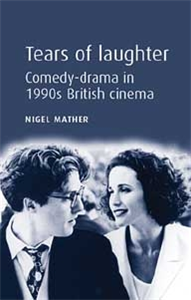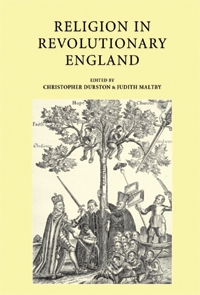Your Search Results
-
Promoted Content
-
Promoted ContentThe ArtsJuly 1997
Films and British national identity
From Dickens to Dad'
by Jeffrey Richards
Jeffrey Richards is a regular radio and television commentator on popular culture. Covers the period from Ealing Studios to Dad's Army. A great read. ;
-
 Trusted Partner
The ArtsJanuary 2019
Trusted Partner
The ArtsJanuary 2019Tears of laughter
Comedy-drama in 1990s British cinema
by Nigel Mather
Tears of laughter' examines the interactions of comedy and drama in three vital thematic strands of British cinema during the 1990s: comedies exploring issues of class, culture and community in British society, 'ethnic' comedy-dramas engaging with complex issues of identity and allegiance in modern Britain, and romantic comedies featuring characters searching (somewhat desperately or frantically) for a suitable and desirable long-term or short-term partner. Films to be discussed in detail include 'Brassed Off' (1996), 'The Full Monty' (1997), 'East is East' (1999), 'Four Weddings and a Funeral' (1994), 'Notting Hill' (1999) and a post-1990s romantic comedy, 'Love Actually' (2003). The study discusses these specific films and a range of other 1990s British comedy-drama films within the context of community-orientated Ealing comedy classics, contentious situation comedies treating race relations as both a laughing matter and a site of conflict ('Till Death Us Do Part' and 'Love Thy Neighbour'), and romantic comedies set and produced in Britain. It is aimed at film studies academics, students and film enthusiasts.
-
 Trusted Partner
The ArtsFebruary 2006
Trusted Partner
The ArtsFebruary 2006Tears of laughter
Comedy-drama in 1990s British cinema
by Nigel Mather
'Tears of laughter' examines the interactions of comedy and drama in three vital thematic strands of British cinema during the 1990s: comedies exploring issues of class, culture and community in British society, 'ethnic' comedy-dramas engaging with complex issues of identity and allegiance in modern Britain, and romantic comedies featuring characters searching (somewhat desperately or frantically) for a suitable and desirable long-term or short-term partner. Films to be discussed in detail include 'Brassed Off' (1996), 'The Full Monty' (1997), 'East is East' (1999), 'Four Weddings and a Funeral' (1994), 'Notting Hill' (1999) and a post-1990s romantic comedy, 'Love Actually' (2003). The study discusses these specific films and a range of other 1990s British comedy-drama films within the context of community-orientated Ealing comedy classics, contentious situation comedies treating race relations as both a laughing matter and a site of conflict ('Till Death Us Do Part' and 'Love Thy Neighbour'), and romantic comedies set and produced in Britain. It is aimed at film studies academics, students and film enthusiasts. ;
-
 Trusted Partner
Humanities & Social SciencesJanuary 2007
Trusted Partner
Humanities & Social SciencesJanuary 2007Religion in Revolutionary England
by Christopher Durston, Judith Maltby
This book offers a collection of essays tightly focused around the issue of religion in England between 1640 and 1660, a time of upheaval and civil war in England. Edited by well-known scholars of the subject, topics include the toleration controversy, women's theological writing, observance of the Lord's Day and prayer books. To aid understanding, the essays are divided into three sections examining theology in revolutionary England, inside and outside the revolutionary National Church and local impacts of religious revolution. Carefully and thoughtfully presented, this book will be of great use for those seeking to better understand the practices and patterns of religious life in England in this important and fascinating period. ;
-
 Trusted Partner
Film theory & criticismFebruary 2014
Trusted Partner
Film theory & criticismFebruary 2014The Encyclopedia of British Film
Fourth edition
by Edited by Brian McFarlane
With well over 6,300 articles, including over 500 new entries, this fourth edition of The Encyclopedia of British Film is a fully updated invaluable reference guide to the British film industry. It is the most authoritative volume yet, stretching from the inception of the industry to the present day, with detailed listings of the producers, directors, actors and studios behind a century or so of great British cinema. Brian McFarlane's meticulously researched guide is the definitive companion for anyone interested in the world of film. Previous editions have sold many thousands of copies and this fourth edition will be an essential work of reference for enthusiasts interested in the history of British cinema, and for universities and libraries.









